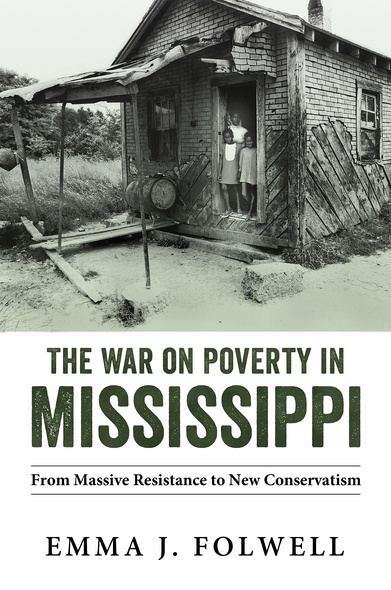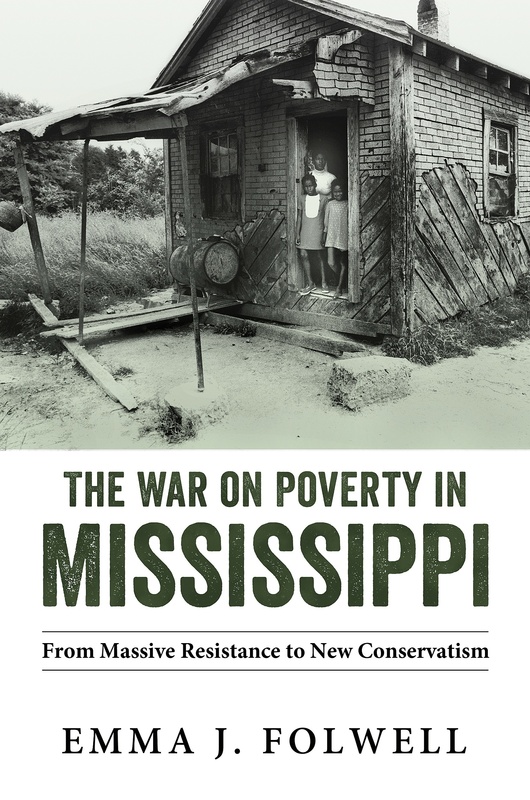
The War on Poverty in Mississippi
From Massive Resistance to New Conservatism
President Lyndon B. Johnson’s war on poverty instigated a ferocious backlash in Mississippi. Federally funded programs—the embodiment of 1960s liberalism—directly clashed with Mississippi’s closed society. From 1965 to 1973, opposing forces transformed the state.
In this state-level history of the war on poverty, Emma J. Folwell traces the attempts of white and black Mississippians to address the state’s dire economic circumstances through antipoverty programs. At times, the war on poverty became a powerful tool for black empowerment. But more often, antipoverty programs served as a potent catalyst of white resistance to black advancement.
After the momentous events of 1964, both black activism and white opposition to black empowerment evolved due to these federal efforts. White Mississippians deployed massive resistance in part to stifle any black economic empowerment, twisting antipoverty programs into tools to marginalize black political power. Folwell uncovers how the grassroots war against the war on poverty laid the foundation for the fight against 1960s liberalism, as Mississippi became a national model for stonewalling social change.
As Folwell indicates, many white Mississippians hardwired elements of massive resistance into the political, economic, and social structure. Meanwhile, they abandoned the Democratic Party and honed the state’s Republican Party, spurred by a new conservatism.
Though it has been more than a half century since the program’s establishment, academic studies of the War on Poverty remain relatively limited. While a number of studies have examined the impact of War on Poverty programs on local communities from the ground up, focusing on initiatives such as Head Start, Job Corps, and community health centers, Emma J. Folwell concentrates on the political ramifications of the War on Poverty in Mississippi. . . . While opposition to antipoverty programs in Mississippi has been well documented, it is Folwell’s exploration of how War on Poverty programs like Head Start were co-opted by local whites that makes up the main argument in her meticulously researched book.
The book benefits from thorough research, detailed endnotes, and an extensive bibliography. . . .
The War on Poverty in Mississippi takes an original and appealing approach to activism about education, economic opportunity, and racism by studying multiple groups that worked to overcome poverty and economic injustice in Mississippi and the changing nature of groups that opposed those efforts. . . . The book tells stories that are significant both as individual episodes and as part of a larger narrative of conflict and change.
Recommended for public, school and academic libraries.
In The War on Poverty in Mississippi, Emma J. Folwell uses exhaustive archival research to build a compelling case that the war on poverty in Mississippi served as a kind of political-bureaucratic laboratory for white conservatives to develop tactics to oppose racial liberalism and undermine the Great Society. She shows how Mississippi, once again, served as a national model for resistance to racial progress.
Emma J. Folwell is senior lecturer in history at Newman University in Birmingham, England. Supported by grants from the Lyndon Baines Johnson Presidential Library, the British Association for American Studies, and the Royal Historical Society, her research has appeared in the Journal of Mississippi History, Journal of American Studies, and Reviews in History. In 2018–19, she received a Fulbright Award.





